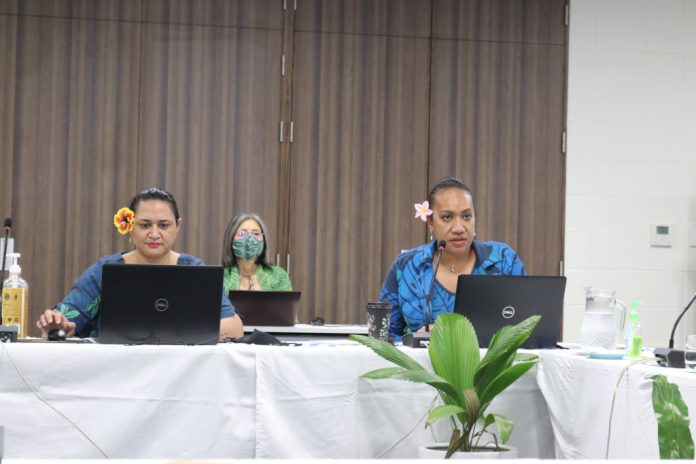Eleven factsheets designed to convey and communicate the key findings of the latest Intergovernmental Panel on Climate Change (IPCC) report are available for all members of the public so they can stay up to date with the latest developments and how climate change impacts them.
The factsheets, developed by a partnership between The Australian National University (ANU) and the Pacific Climate Change Centre (PCCC) hosted at the Secretariat of the Pacific Regional Programme (SPREP), were created to support the release of the report.
The findings of the report, which among other things discovered that Pacific nations are amongst the most vulnerable and exposed to climate change impacts, are being dissected and discussed during a series of IPCC Pacific webinars.
The first overview factsheet was developed for the Pacific Webinar for the IPCC 6 Assessment report. An overview of the physical science of climate change for the Pacific was utilized as an infographic for Pacific climate negotiations.
The IPCC 6 Assessment Report (6AR) An overview of Impacts, Adaptation and Vullnerability for the Pacific report found that adaptation measures are shown to reduce climate change’s impacts on people and ecosystems and that if the Pacific nations’ exposure to key risks are to be reduced, adaptational policy, finance and practice need to be stepped up.
Seven factsheets summarise the report’s key findings for the Pacific. There is one summary factsheet as well as six sector-specific factsheets on:
*Water and Sanitation
*Infrastructure and Settlements
* Marine Ecosystems and Fisheries
* Health and Wellbeing
*Food
* Disaster Risk Management
The latest Pacific webinar hosted last week was based on the IPCC 6AR on Mitigation and Climate change, three factsheets were developed to summarise the key findings for the Pacific;
*Climate Change Mitigation Finance and Technology
*Greenhouse Gas Emissions
*Climate Change Mitigation and Development Pathways
‘Ofa Ma’asi-Kaisamy, Manager of PCCC said the factsheets are an excellent tool to understand and engage members of the public in the conversation about the IPCC’s latest report and how it impacts them.
“Documents such as the IPCC reports are often very technical and hard to understand for people who are not actively involved in these conversations but we hope the factsheets allows them to easily comprehend what is happening, why it is happening and their role as a response,” said Kaisamy. “Climate change affects everyone and we really want to expand this conversation and engage as many people as possible because of the urgency of the matter.”
The Manager of PCCC further pointed to the IPCC report confirming the urgent need to global climate actions.
“Our Pacific countries are the least responsible for global warming and biodiversity loss, yet we are facing the harshest consequences that will continue to worsen in years to come. Our future is uncertain if the world fails to pay attention to the warnings in the report”,” said Kaisamy. “We have had to deal with these impacts and vulnerabilities in addition to the global COVID-19 pandemic, however, our strength and resilience as tight-knit communities has helped us to adjust our lives as needed. Impacts are and will affect key sectors such as food, infrastructure, water and sanitation, marine ecosystems, disaster management, and health and wellbeing.” .
For more information, visit: https://www.sprep.org/webinar/pacific-climate-change-center-webinar-on-the-intergovermental-panel-on-climate-change-sixth-assessment
SOURCE: SPREP/PACNEWS

















